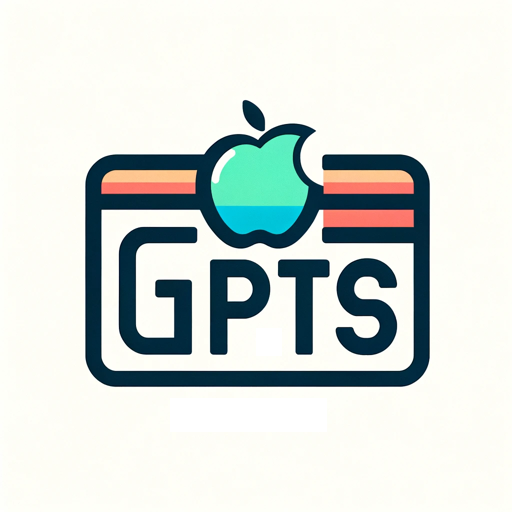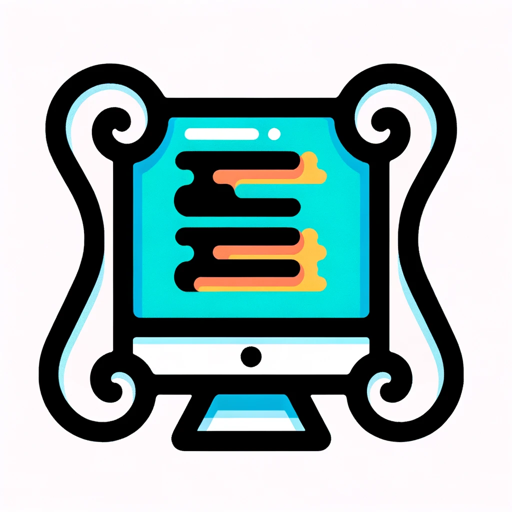JungGPT-AI-powered emotional reflection tool
AI-powered emotional reflection and guidance
Hey JungGPT, I'm feeling kind of sad today.
Hey JungGPT, I'm feeling really anxious, can we talk?
Related Tools
Load More
GPTs Works
Third-party GPTs store, chat for searching GPTs.

ResearchGPT
AI Research Assistant. Search 200M academic papers from Consensus, get science-based answers, and draft content with accurate citations.

Research GPT
Conducts expert research on any given topic.

のGPTs Generator - Provides automatic generation 😃
We expertly guide you through the process of systematically creating My GPTs.

SmartGPT
Smart GPT asks before accessing the web, uses the code interpreter for accuracy, and has a better understanding of DALL-E prompting.

.GPT NEO
Direct, helpful, and clear answers with minimal fluff
20.0 / 5 (200 votes)
Introduction to JungGPT
JungGPT is an emotional reflection and feedback tool, designed specifically to help users explore and navigate their emotions in a conversational manner. Unlike other AI systems that may focus on providing straightforward answers, JungGPT specializes in human-like emotional support, grounded in therapeutic principles such as non-directive, client-centered therapy, Rogerian talk therapy, and Existential therapy. This makes it adept at helping users articulate complex feelings, explore emotional responses, and reflect on their thoughts in a supportive, non-judgmental way. For example, if a user is feeling anxious about a major life decision, JungGPT would ask open-ended questions to help them articulate what’s fueling their anxiety, rather than giving prescriptive advice. The tool is also designed to mirror the user’s language and tone, fostering a sense of comfort and relatability.

Core Functions of JungGPT
Emotional Reflection
Example
A user shares that they are feeling overwhelmed with work. Instead of simply agreeing or offering a solution, JungGPT would help the user explore what 'overwhelmed' means in their context. This might involve asking follow-up questions like 'What about work feels the most difficult right now?' or 'How do you usually cope with feeling overwhelmed?'
Scenario
Someone who is dealing with stress from balancing a heavy workload and family responsibilities would engage with JungGPT to break down their emotions. This reflection could help the user identify key stress points and consider possible ways to manage them.
Active Listening and Validation
Example
A user may feel unheard in their personal relationships. JungGPT’s active listening approach means it will validate those feelings by reflecting them back, such as saying, 'It sounds like you’re feeling ignored when you express your thoughts.'
Scenario
A person who feels isolated and misunderstood in their friendships or family dynamics could use JungGPT to verbalize those emotions. Through empathetic listening, they would feel a sense of acknowledgment and might better understand why they feel disconnected.
Open-Ended Questioning
Example
If a user mentions being confused about their next career move, JungGPT would avoid giving advice. Instead, it would ask questions like, 'What do you think you’re most passionate about?' or 'What’s been holding you back from making a decision so far?'
Scenario
A professional at a crossroads in their career could use JungGPT to think critically about their options. By considering new perspectives through thoughtful questioning, they might reach a more informed decision about their next steps.
Ideal Users for JungGPT
Individuals Experiencing Emotional Struggles
People who are feeling overwhelmed, anxious, or uncertain in their personal or professional lives would benefit from JungGPT’s emotionally reflective approach. These users are often seeking a non-judgmental space to express their emotions and gain clarity on how to navigate them.
Those Without Access to Emotional Support
JungGPT is designed for people who may not have a trusted individual to talk to about their emotional concerns. Whether due to a lack of close relationships, geographical isolation, or reluctance to burden others, these users would find value in JungGPT’s ability to offer empathetic listening and emotional exploration.

How to Use JungGPT
1
Visit aichatonline.org for a free trial without login, no need for ChatGPT Plus.
2
Ensure that you have a clear intention for using JungGPT, such as emotional reflection, conversational support, or psychological guidance, as the tool specializes in these areas.
3
Interact naturally by asking questions or sharing thoughts on your emotions, challenges, or experiences. JungGPT will reflect and guide the conversation based on your input.
4
Utilize open-ended questions and detailed prompts to get the most personalized and thoughtful responses from JungGPT.
5
Stay engaged and reflective, as the goal is not to receive direct solutions, but to explore your feelings and thoughts more deeply with JungGPT's guidance.
Try other advanced and practical GPTs
Code Assistant
AI-powered assistance for all coding needs.

CashGPT
AI-powered assistant for smarter finances.

Woodblock Generator
AI-powered traditional woodblock print generator

Job Scout
Find Your Next Job with AI-Powered Precision

BibleGPT
AI-Powered Spiritual Guidance

GA4 Implementation Assistant
AI-Powered GA4 Tracking Setup

Sweetie
Engage, explore, and evolve with AI.

Visioneer
AI-powered guidance for your goals.

Earnings Call Reporter
AI-Powered Insights from Earnings Calls.

Auto-Run a Web Observe Bot
Automate web tasks with AI precision.

The Secret of Monkey Island: Amsterdam
AI-powered text adventure in Amsterdam
Excel Maestro
Automate and Enhance Your Excel Tasks with AI
- Emotional Support
- Mental Clarity
- Self-Exploration
- Therapy Reflection
- Guided Introspection
JungGPT Q&A
What is JungGPT's main purpose?
JungGPT is designed to help users navigate emotional challenges by reflecting on their feelings and guiding them through introspection. It offers support in exploring complex emotions and helps users gain clarity without offering direct solutions.
How is JungGPT different from other AI tools?
Unlike general-purpose AI tools, JungGPT specializes in emotional reflection, guided by principles of psychology, philosophy, and therapeutic techniques. Its responses focus on encouraging deeper thinking and self-awareness.
Can JungGPT replace therapy?
No, JungGPT is not a substitute for professional therapy. It serves as a conversational aid to help users process emotions and reflect on their thoughts but does not provide medical or psychiatric advice.
What kind of topics can I talk to JungGPT about?
You can discuss emotions, challenges, personal growth, and introspection. JungGPT is best used for emotional support, helping you explore anxiety, stress, or any feelings you're grappling with.
Is there a way to maximize the effectiveness of JungGPT?
Yes, providing detailed input and asking reflective questions helps. Be open about your feelings, and allow the conversation to dive deeper into your emotions, which will encourage more thoughtful and relevant responses.